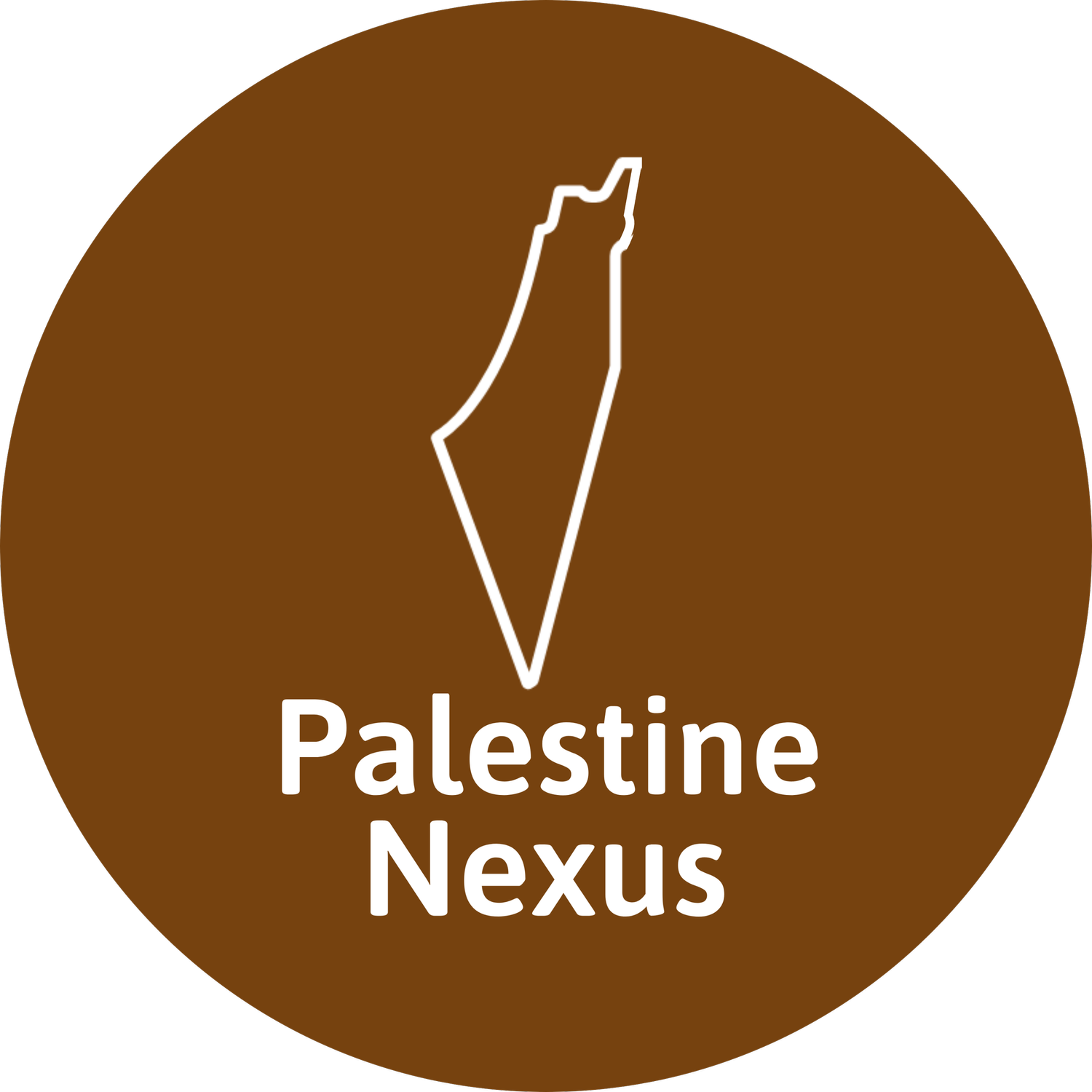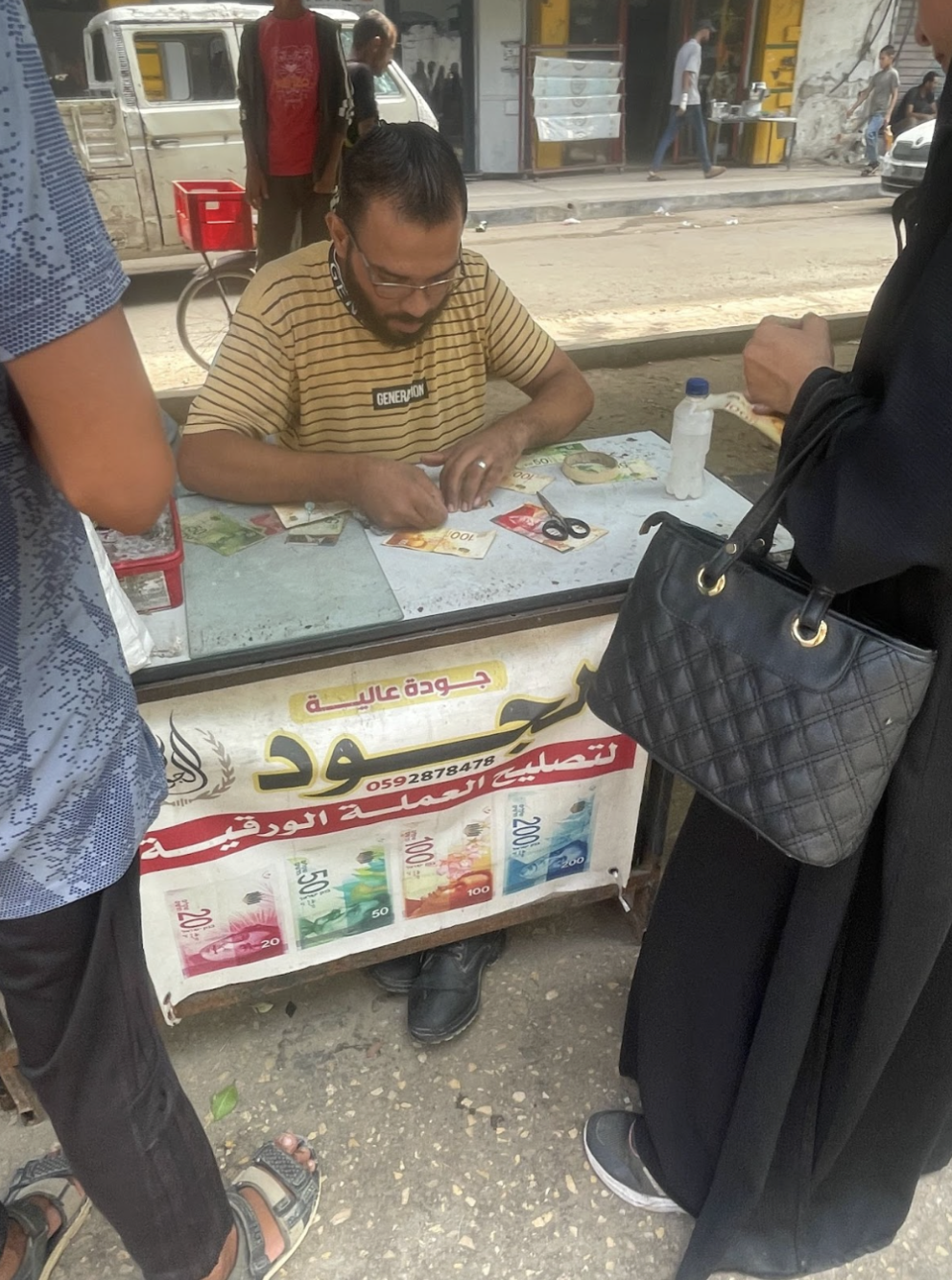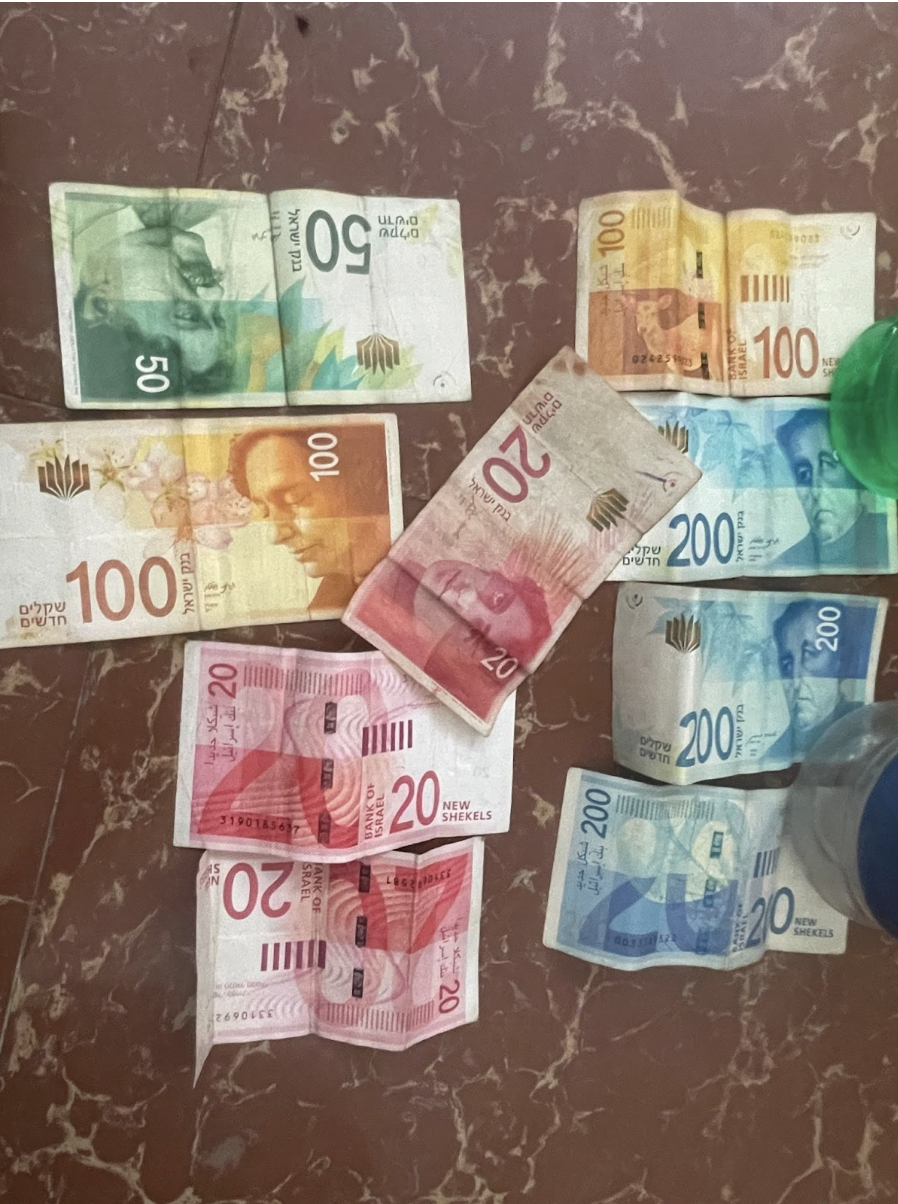How Israel Has Created a Cash Crisis in Gaza
A Palestinian man fixes torn currency in Deir al-Balah, Gaza in August 2025. With ATMs bombed and no new currency from Israel since before October 2023, the liquidity crisis in Gaza has reached a tipping point. Photo credit: Khaled Qershali
Mohmmed Said al-Ghoz, 29, was a high school chemistry teacher at al-Zaitoon School in Gaza City before the genocide started in 2023. al-Ghoz, who used to live in the al-Tuffah neighborhood prior to evacuating last October, has since had to go back to teaching students, this time online, to afford a living in Gaza. And while it did provide him a small source of income, he has to forfeit half of what he earns because of the worsening cash crisis in Gaza.
At the beginning of this genocide, all banks in the Gaza Strip had shut down, and ATMs were all but bombed or left dysfunctional, leaving very few ways for people to withdraw cash. The Israeli occupation has also prevented any new currency from entering the Gaza Strip, even before October 2023, compounding this shortage. Initially, after October 7th, people used and accepted digital payments, but soon, those avenues closed too. Now, cash is the only acceptable means of payment, even as people are left with only torn and threadbare bills. This crisis has further worsened in recent months as Israel has intensified its bombardment, forcible displacement orders and policy of starvation.
al-Ghoz receives payments from his students via the online payment platform PayPal. However, PayPal doesn’t provide services in Gaza. Like many Palestinians, he receives the payment in a friend’s PayPal account outside Gaza. The process thereafter gets complex and increasingly expensive.
"Whenever I transfer $100 from PayPal to a Bank of Palestine account, 14% of that money is paid to the owner of the PayPal account," al-Ghoz told Palestine Nexus. To withdraw the remaining $86 in cash, he has to pay a commission of 40% to cash brokers in Gaza. This cash crisis is exacerbated by skyrocketing pricings, as basic necessities have gone up by over 4000% in price, according to UNRWA, if anything is available at all.
"I eat one meal every day,” said al-Ghoz, father of Rakaan who is a little under 2 years old. “With the rest of my earnings, I can barely afford to buy milk and disposable diapers for my son. One diaper costs $5 and an expired milk powder can cost $100, in cash. I said expired because all the milk powder is expired in the Strip,” he added.
People are left with very little to no cash in Gaza, forcing them to either fix torn notes for a fee or pay a high commission for cash withdrawals from brokers. Photo credit: Khaled Qershali
Tariq Muhammad Hussein al-Kafarna, 42, is a father of six from Beit Hanoun in the north of Gaza. He used to own the Beit Hanoon laboratory, which has since been bombed. Now, al-Kafarna fixes torn and tainted notes for a small fee. The idea occurred to him when he had to repair a torn note for himself, realizing that this is a widespread problem.
Legally, torn banknotes should be returned to the bank to be reprinted, but without the option to do so, people like al-Kafarna have had to take the job into their own hands.
"For each repaired banknote, I take around 50 cents," he said. "I am doing this to help people, not to earn money."
al-Kafarna uses simple tools: white glue, scissors, erasers, and adhesive tape. He then glues the notes together to prevent them from tearing again and sells them as usable currency. The notes must be repaired without affecting the print on the paper for them to be acceptable.
Hazem Shallah, 41, is an employee at the Palestinian National Authority. Of the $500 he receives as monthly salary in his Palestinian bank account, he only gets $300 after paying a commission. "I was glad when I found some markets in southern Gaza that accepted online payments," Hazem said. However, that relief did not last. The shops that accept online payments have to levy a hefty commission too.
"This week, I went to get cash from a broker, and I was shocked that the commission had crossed 49%! Even then, the banknotes I would receive were torn and threadbare," Shallah said. Shallah ended up paying a whopping 55% commission for usable notes from a different cash broker.
“It is unimaginable what the occupation is doing to us.”
Subscribe to the Palestine Nexus newsletter:



